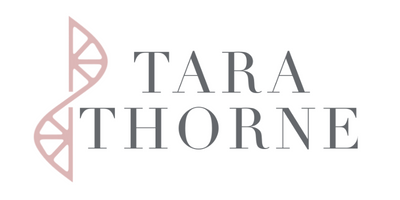A while back I experienced something that totally freaked me out. It happened 3 times that I can recall and I didn’t connect the dots at first.
Here’s what happened. It started with me becoming really hot and red in the face. I also felt tingly in the face and then this hot red rash would spread down to my neck and onto my arms and the tops of my hands.
First it happened when I was sitting on the couch happy as a clam, puttering away doing my work. There was no rhyme or reason for it and so it took me by surprise and at first I thought: is this an allergic reaction to something I ate? But I have never had allergies to anything, and deep down I knew this likely wasn’t the case.
The second time it happened I was working again but this time at my desk in my office and I had a deadline. I remember seeing an email pop up and it overwhelmed me – I felt incredibly stressed due to my workload. This is when I realized: I think I’m having a stress-induced histamine reaction.
Histamine is produced as a part of normal biological processes. It’s actually produced in the brain – in the hypothalamus – and sends signals through the central nervous system, (it’s a neurotransmitter).
You probably know histamine as the culprit behind red and itchy eyes during allergy season, and it is, but it’s also the culprit behind so many more symptoms that many people aren’t aware of, (see the list of symptoms below).
But taking an antihistamine isn’t the answer if you have seasonal allergies or hives. Instead, I would encourage you to look at the root cause of why you’re having these reactions, (and often is stems from the gut).
Problems arise with histamine when you reach a histamine threshold that your body can’t deal with. Histamine intolerance then occurs when you can’t break down the histamine you have in your system and this is when you start to see symptoms of histamine intolerance.
Some of the symptoms of histamine intolerance include:
- Sleep issues (histamine plays a big role in your sleep/wake cycle)
- Headaches and migraines (Histamine stimulates nitric oxide in the brain – and women have more of the histamine receptor: H1 in the brain then men, hence why so many women struggle with migraines and headaches, especially pre-mensturatlly ((histamine increases estrogen and estrogen increases histamine – more on that below)).
- PMS – this is a big one!
- Adrenal fatigue (HPA axis dysfunction)
- Anxiety and depression
- Motion sickness and nausea
- Low blood pressure
- Urgency (histamine stimulates the bladder)
- Red, itchy eyes
- High cholesterol (high level of histamine may depress amino acids which can lead to high cholesterol)
- Skin issues such as hives, rashes, flushing, red skin, eczema
- Edema
- Runny nose and nasal congestion
- Seasonal allergies
- Sneezing
- Asthma
- Cardiovascular issues
- Appetite (histamine regulates appetite)
- Gut issues such as diarrhea, constipation, cramping, nausea, gas, irritable bowel syndrome, acid reflux
Stress can release histamine too, and this is what happened to me. What else plays a role in the over-production of histamine in the body?
- Your diet. If you consume a lot of high histamine foods or histamine liberating foods you may have a histamine load that is too much for your body to deal with. Some of these foods – that are otherwise healthy – include: chocolate, citrus, avocado, bananas, tomatoes, nuts, alcohol, fermented foods, bone broth, cheese, fish and seafood – (especially canned), spinach, strawberries, and pineapples.
- Medications that block the enzymes, (DAO and HNMT) that breakdown histamine in the body.
- An over-production of histamine-producing bacteria in your gut and not enough of the histamine-degrading bacteria.
- Genetic variants in the enzymes that breakdown histamine in the body, (as mentioned above these are DAO and HNMT). Histamine is broken down via methylation and you can read more about this incredibly important biochemical process in the body here.
And histamine is a big deal for women because histamine stimulates estrogen and estrogen stimulates histamine. So if you have any estrogen dominant conditions such as PMS you may want to look at your histamine load. But also, if you are struggling with fertility histamine can be a big issue. You see, DAO is one of the enzymes that is responsible for breaking down histamine and we make 500 times more DAO enzyme during pregnancy. This prevents excess histamine entering the placenta and going into maternal or fetal circulation, (and it’s the reason why a lot of your allergy symptoms may disappear during pregnancy). But low DAO activity – due to genetic issues, (variants you may possess) or gut dysfunction, (such as dysbiosis and an overload of histamine-producing bacteria) can create an increase in histamine and hence complications in pregnancy such as diabetes, miscarriage, and premature birth.
If you think you may have an issue with histamine then I encourage you to reach out to me here to set up a free 15 minute consultation and take this histamine questionnaire, which will give you an indication as to whether or not histamine is something you should start thinking about.




